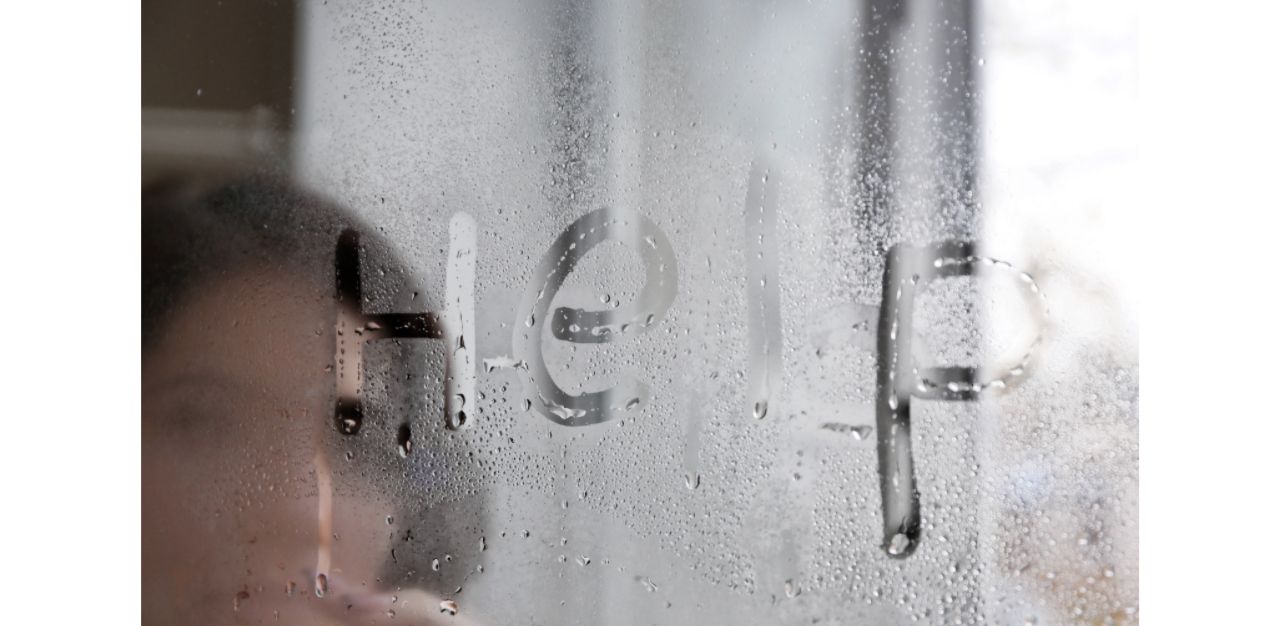(CONTENT WARNING: The article contains information on suicide.)
The adage that suicide is a permanent solution to a temporary problem seems to hold true.
Dr Irene Tirtajana, who heads the Department of Psychiatry at Ng Teng Fong General Hospital, emphasises that “whether it is mental pain, physical illnesses, financial issues, anger, [or the feelings of] hopelessness, things do get better even when it seems impossible at the moment.”
Echoing the advice of many healthcare professionals on the need to reach out for help, Dr Tirtajana says, “Help is available and you don’t need to carry this burden alone. Please talk to someone you trust, call the suicide helpline, or seek professional help if you develop intentions to attempt suicide.”
Despite the greater awareness of mental health challenges and available resources for mental support, there are some who still fall through the cracks. Two such people were a Singapore Police Force national serviceman and a Singapore Armed Forces regular serviceman, who killed themselves in the past two weeks.
The year 2020 saw a significant rise in suicide and crisis-related calls to suicide prevention agency Samaritans of Singapore (SOS), with many seeking help as the pandemic severely disrupted lives and livelihood of many.
With more than 400 suicides reported in Singapore last year (2020), the decriminalisation of suicide in the same year was a milestone in Singapore’s suicide prevention policy and it has helped refocus strategies on supporting individuals experiencing mental distress and allowing survivors to recover and heal without the fear of criminal prosecution.

For decades, attempting suicide was considered a criminal offence to deter people from taking their lives. It was the result of such an outmoded societal mindset that made open discussions on mental health issues difficult, with many individuals choosing to remain silent and were suffering alone. The global Covid-19 pandemic and lockdown have resulted in people struggling with uncertainty, more so than usual. Vulnerable communities are anxious about their health. Businesses worry about the ongoing challenging economic climate. Students, teachers and even parents do their best to cope with home-based learning and digital classrooms.
In a recent parliamentary reply (27 July), the Ministry of Education (MOE) cited that the suicide incidence rate for young persons aged 10 to 19 increased proportionally with national trends and “rose 4.0 per 100,000 persons in 2019 to 5.5 per 100,000 persons in 2020”.
The ongoing pandemic has worsened existing stressors that youths face, such as family relationships and academic and personal struggles. MOE observed that the increase in psychological and mental distress among the youth in Singapore is linked to various reasons such as “frustrations arising from disruptions of normal routine, a heightened sense of uncertainty about the future, and increased interpersonal conflicts at home due to restricted movement.”
Overcoming negative stereotypes, avoiding relapses and emerging healthier
Despite the rise in awareness of mental health illnesses, the stigma, prejudice and discrimination against people with mental illness still persist. Dated assumptions that individuals with mental illness would behave irrationally and cannot be taken seriously still exist.
Data has shown that for every suicide, at least six suicide survivors are left behind and Voon Yen Sing, Senior Assistant Director, Clinical Services at Singapore Association for Mental Health (SAMH) highlights the challenges faced when clients, especially those with diagnosed mental illness, internalise negative stereotypes of mental illness (ie, self-stigma), and become unable to cope with stress; or relapse while recovering.

The decriminalisation of suicide last year allows survivors to focus on healing and recovery, instead of worrying about criminal prosecution. Society is now able to provide a more holistic approach — mental, emotional and physical support — rather than the threat of punishment. Caregivers are also able to seek support and help for their loved ones with depression, without fear of being persecuted for exposing their suicidal thoughts.
In addition, the updates to Tripartite Guidelines on Fair Employment Practices removes a major barrier into the workplace as companies can no longer ask job applicants to declare if they have any mental health disorders.
Recognising the psycho-social impact of the pandemic and the mental health challenges faced by Singaporeans, the government has pulled resources together under a national mental health and well-being strategy to better provide information and a national mental health curriculum for the management of mental health issues.
Calls for a national suicide prevention strategy has been steadily growing.
Championing the need for such a strategy, former nominated member of parliament Anthea Ong highlights that “without a national strategy for [community support groups] to align to, we risk having a fragmented and sub-optimal approach to supporting survivors and bereaved families.”
Aiming for zero suicide, especially among children and teenagers, Ms Ong cites studies that “83 per cent of people who die by suicide visit some kind of doctor a year before their death” and recommends that healthcare facilities, especially emergency departments be at the forefronts of any prevention strategy.
Treatment after a suicide attempt
Dr Tirtajana says at the hospitals, patients presented after an attempted suicide are treated with the same level of respect, attention and professionalism as any other patients and those in an acute hospital setting is cared for by teams of medical and allied health professionals.
A psychiatric assessment is typically only performed after these patients have been stabilised medically. Those who have lost consciousness or needed life support would be allowed to take some time to return to a normal level of consciousness.
Dr Esther Tan, a consultant with the Department of Emergency Medicine at Ng Teng Fong General Hospital says that in caring for a patient who has attempted suicide, it is “an opportunity for us to engage the individual, empathise with their current emotional and mental state and to provide reassurance that we are here not to judge but to work with them to get the most appropriate care for their needs.”
And doctors have observed that a significant number of patients regret the attempt and no longer have intentions to harm themselves. Similarly, research have shown that 9 out of 10 people who attempted suicide and survived will not go on to die by suicide at a later date.

It is important to focus on recovery and for both the patient and their loved ones to journey together towards mental wellness after a suicide attempt. The first step is building a supportive community around the patient.
Surviving suicide and support for suicide survivors
It is never easy to lose a loved one to suicide and the grief is often accompanied with feelings of “stigma, shame and embarrassment.”
Senior assistant director at SOS Wong Lai Chun explains that suicide survivors need a “supportive and understanding environment to allow them to heal.” She adds that feelings of rejection and an inability to express their feelings “could lead to social isolation” and reduce their outreach for support.
A national suicide prevention strategy should therefore include and recognise the impact of a suicide death on loved ones who are left behind and the struggles they face from their loss. Ms Wong believes that “a supportive and understanding environment [will] allow them to heal.”
As conversations on mental health and suicide become more open and accepted in the community, it is important to understand that individuals who attempt suicide do not view it as the only option but rather have exhausted their emotional reserves and physical energy to pursue other options.
Suicide is not just a decision but a tragic outcome of extraordinary circumstances that few of us have a lot of control over. The presence of better and more extensive social safety networks is needed and it is only through the recognition and destigmatisation of mental illness and a coordinated delivery of care for mental health illnesses can we better manage the incidences of suicide.
Seeking help
“There is absolutely nothing wrong with seeking help. [However], it takes a lot of strength to ask for it,” says Ms Voon.
“We recognise that mental health and illness [is] often clouded by stigma. Most of which is enveloped by shame and fear of being judged by people,” she adds, encouraging individuals to take the active step to care for themselves.

Prior to seeking professional help, it is usual for individuals to have considered the need for some time first. Even after making the call, it is rather common “they may still be ambivalent about having counselling – wonder[ing] if there’s a need and unsure of what may happen during counselling,” Ms Voon says.
Depending on what the needs of the callers are, counsellors provide different resources and coping strategies for personal reflection and practice, or arrange for counselling appointments to work on the issues that they face.
Research has shown that 46 per cent of people who die by suicide had a known mental health condition and it is, therefore, important that such signs are recognised and the right mental health support made available.
It is important to create a safe environment for suicidal individuals, and their family and friends, to share and seek help. Despite searching for solutions, despair often sets in and the sense of hopelessness pushes individuals towards suicidal thoughts. The following professional resources are available:
- National Care Hotline: 1800-202-6868
- Samaritans of Singapore: 1800-221-4444
- Singapore Association for Mental Health: 1800-283-7019
- Institute of Mental Health’s Mobile Crisis Service: 6389-2222
- Care Corner Counselling Centre (Mandarin): 1800-353-5800
- Silver Ribbon: 6386-1928
- Tinkle Friend: 1800-274-4788
- TOUCHline: 1800 377-2252 (Mon to Fri, 9am to 6pm)
- Brahm Centre Assistline: 6655-0000 (Mon to Fri, 9am to 6pm) After hours: 8823-0000 (WhatsApp available)
Join the conversations on TheHomeGround Asia’s Facebook and Instagram, and get the latest updates via Telegram.














